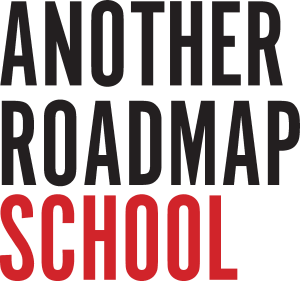The Helsinki working group of Another Roadmap was convened by Nora Sternfeld, Professor for Curating and Mediating Art at the School of Arts, Aalto University, with Ahmend al-Nawas organising this group of students from the MA course in Curating, Managing and Mediating Art. The degree programme involves students in reflecting about the audiences of contemporary art, its presentation and reception in the context of pedagogical models of shared expertise and exploratory learning. Forming a research group contributing to Another Roadmap is part of this open, conversational and dialogical space for learning and acting.
In November 2012, the
Nomad Agency of Emergent Studies/
NAES
was invited to collaborate on the research incorporated into the Helsinki working group.
NAES
is a collective-connective research agency and a cultural production studio that functions as a platform for developing emergent dynamics of social organization, promoting critical thinking and alternative forms of knowledge creation.
After a first workshop during December 2012, the group agreed on outlines which their research contribution will take. Based on critical pedagogy practices the research aims to start with an investigation about the current situation concerning arts and culture in general and specifically arts education practices and policies in Finland:
1. During the last decades the tendency to privatize education and arts in Finland has become stronger and more visible. As a result, the research will reflect on the accompanying processes, such as:
- the shift of cultural policies towards creative industries; and
- the reduction of governmental support for arts and culture and the dependency on national lottery and private investors for funding.
2. Finland is exporting knowledge which also is based on creative industries. At the same time, the educational system in Europe is traditionally based on class, involving mechanisms such as vocational learning. The educational system thus has been formed according to the demands of industry and economic factors and thus extended into divisions of social class. The group therefore aims to reflect on a number of questions concerning the implication of education and the role of policies on socio-political processes:
- How can the academy be questioned when education has become a new caste system where inclusion is dependent not only from curricular but also from habitual learning?
- Rethinking education in terms of knowledge production.
- Questioning to what extent art education practices and art education policies deal with “education” or rather with “pedagogy”?
3. Departing from a reflection about the effects of this context on the wide array of practices in arts education, including, but not limited to art education in schools, gallery education, education of artists, etc., the research group is going to reflect on a range of questions as a first outline of not only of an intended research but also as contribution to “plotting alternatives” for Another Roadmap:
- How can other frameworks for (arts) education in Finland be thought given this situation?
- How can education be thought using resilient strategies against these influences?
- How can a pedagogical platform be conceived that allows dissent and antagonism?
- How can this pedagogical platform allow for a critical reflection of terminology and references?
- How can education be actualized from a perspective of cultural plurality and emergent dissenting practices?
A preliminary collection of references includes the following:
Manuel Castells & Pekka Himanen (2002)
The Information Society and the Welfare State: The Finnish Model
. Oxford University Press, New York.
Heikki Patomäki (2007)
Uusliberalismi Suomessa. Lyhyt historia ja tulevaisuuden vaihtoehdot
[ Neoliberalism in Finland. A Brief History and Future Alternatives ]. WSOY, Helsinki.
Ivan, Illich (1971)
Deschooling Society
. NY: Harper & Row, Publishers.
Maurizio Lazaretto (2006)
Construction of Cultural Labour Market
. European Institute for Progressive Cultural Policies.
http://eipcp.net/policies/cci/lazzarato/en
Raimund Minichbauer (2006)
Chanting the Creative Mantra. The Accelerating Economisation of EU
Cultural Policy. European Institute for Progressive Cultural Policies.
http://eipcp.net/policies/cci/minichbauer/en
